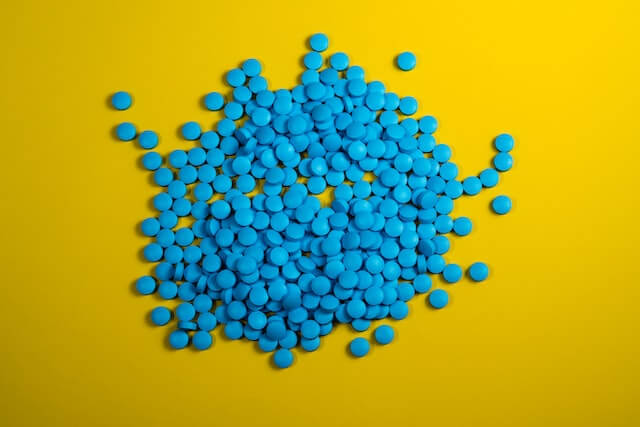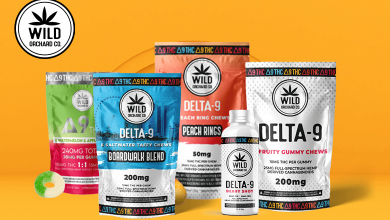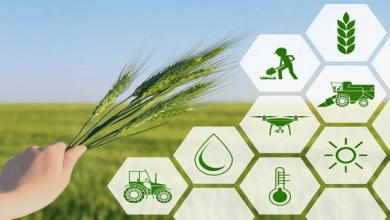What Vitamins Help Produce Estrogen?

If you’re interested in boosting your estrogen levels, you might wonder which vitamins can help. While many different nutrients play a role in hormone production, some vitamins are essential for estrogen production. But first, let’s talk about what estrogen is and how it affects our health and lifestyle.
What Is Estrogen and What Vitamins Help Produce It?
Estrogen is a vital hormone in the development and function of the female reproductive system. However, it also has several other critical roles in the body, such as regulating metabolism and bone density. Moreover, estrogen helps to keep cholesterol levels in check. It also plays a role in brain function and overall mood.
While our bodies naturally produce estrogen, some may need to supplement their hormone levels due to conditions like menopause or amenorrhea. Consult with a doctor or pharmacist to determine how to measure hormone levels and what to do to bring them back in balance.
How to Make Sure That You’re Producing Enough Estrogen
The best way to do so is to exercise regularly and eat a healthy diet of fruits, vegetables, and whole grains. Also, try to limit the use of saturated fats and alcohol. In addition, one can supplement their diet with vitamins that help produce estrogen.
As we age, we produce less estrogen, leading to many problems, including hot flashes, night sweats, weight gain, and mood swings. There are specific vitamins and minerals that can help with keeping a healthy balance.
The Best Vitamins That Help Produce Estrogen
Here are some of the best vitamins that sid in producing estrogen:
- Vitamin C
This vitamin is a powerful antioxidant that helps to protect cells from damage. Collagen production can boost by Vitamin C, and collagen is essential for maintaining healthy skin and bones. Vitamin C is in citrus fruits, potatoes, tomatoes, bell peppers, broccoli, and kale. Adding those foods to your diet is a simple and effective way to help keep your hormone levels balanced.
- Vitamin E
Like vitamin C, vitamin E is an antioxidant that helps to protect cells from damage. Blood vessels can be kept healthy by using vitamin E. The vitamin also helps prevents blood clots from forming. Vitamin E is in nuts, seeds, olive oil, and avocados. In addition, vitamin E helps produce estrogen in the body by working with other vitamins and minerals, such as vitamin A and zinc.
- B Vitamins
The body’s energy production and metabolism rely on B vitamins. They also help the body produce red blood cells and maintain healthy nerve function. B vitamins are in dark leafy greens (spinach is very popular), eggs, whole grains, and poultry.
- Iron
This one is essential for carrying oxygen in the blood. It also helps the body to produce estrogen. Iron is in meat, beans, spinach, and fortified cereals.
- Zinc
This vitamin is involved in many different processes in the body, including cell growth and immune function. Zinc helps the body to produce testosterone, which can convert to estrogen in the body. Zinc is in oysters, beef, pork, chicken, and beans. While you can get zinc from food sources, supplements may be necessary to ensure you get enough of this critical nutrient.
How to Add Vitamins to a Diet
A few essential vitamins and minerals play a role in estrogen production, so ensuring you get enough of them in your diet is necessary. Eat plenty of fruits and vegetables. Fruits and vegetables contain vitamins and minerals, including those needed for estrogen production. Make sure to include a variety of colorful fruits and vegetables in your diet to get the most benefit.
If you’re not getting enough specific vitamins and minerals through diet alone, consider taking a supplement. Keep your doctor informed about which supplements you use and ask about possible drug interactions if you take a medicine.
Conclusion
Many different vitamins can help produce estrogen in the body, but some of the most important ones include vitamin E, C, and B-complex vitamins. These vitamins are essential for maintaining hormone balance in the body and can also help reduce the risk of some estrogen-related health conditions. If you are interested in increasing your estrogen levels, talk to your doctor about which supplements might be right for you.





